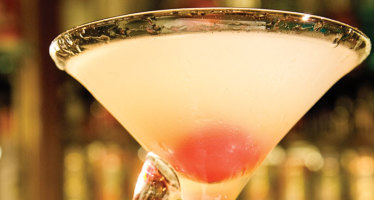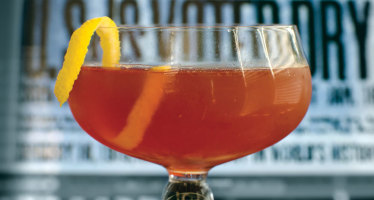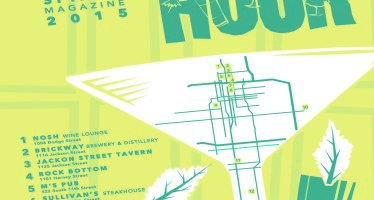Trophy Wines
Recently I viewed an episode of the TV series, “American Greed”. The show is based on true stories of some of the world’s most prolific white collar criminals. The level of deception incorporated into these scams is astounding. Based on the number of episodes being aired, it appears that Bernie Madoff is not the only swindler that has made off with piles of cash.
This particular episode recounts the tale of counterfeit wine dealer, Rudy Kurniawan. Still in his twenties, he made his fortune with some label printing equipment, an X-Acto knife, a funnel, bottle corker, and a rather imprecise method of blending and resealing cheaper juice within the empty bottles of world-renowned wines. Add to this a staggering amount of arrogance, a total lack of conscience and an apparently unlimited line of B.S. and presto, you have just made millions of dollars. It’s a terrific story and one that is sad but true. For those of you who would like to send Mr. Kurniawan a Christmas card, he is a prisoner at a United States Correctional Institution located in Taft, California.
What I found perhaps even more amazing than the actual criminal act was the fact that so many avid collectors and auction houses were hoodwinked in the first place. Was no one skeptical as to how this guy, still in his mere twenties, could possibly have had the experience, money, connections and knowledge to locate and acquire such rare wines in the first place? I mean, one does not exactly stop off at their nearby Hy-Vee to pick up a magnum or two of 1947 Château Lafleur. These wines were extremely limited. Such a collection would have taken years (if not decades) to accumulate. Unless this scammer began collecting in high school, such an arsenal of rarities would have to be suspect.
One also has to wonder if the unfortunate victims of such fraud ever actually tasted any of these wines. Granted, you don’t pop a cork on a $1,000 bottle of wine whilst grilling cheeseburgers, but wouldn’t somebody somewhere have noticed that the vino wasn’t exactly up to snuff?
All of this begs the question: are wealthy collectors buying these wines to actually drink them someday? Or are they merely trophy wines, accumulated to impress guests? I suppose that some of these wines are held as investments, only to be resold at a profit some years later, at which time the new collector will likewise continue to hibernate these dusty bottles. Either way, it seems to me that the ultimate purpose for which these wines were created has been neglected. As deservedly proud of such epic beauties as the winemakers and vintners may be, I can’t imagine that they are thrilled with the prospect that some of their greatest creations may never be consumed.
I am reminded of a particular learning experience from many years ago. Working in the family business, a wholesale wine distributorship, alongside multiple generations of rather uninhibited relatives, the thought crossed my mind that some of our wines may actually be more valuable in the future than they were at present. Maybe we should sit on a few of these gems. It certainly wasn’t a bad idea. With this undeniable knowledge in hand, my much braver cousin, Lou, brought the idea to his father, my Uncle Vince.
“Hey dad, some of these wines are pretty exclusive. If we had a cellar we could store them. They may be worth a lot more in a couple of years.”
With the reflex of a gunslinger drawing his weapon in a Clint Eastwood movie, my Uncle Vince points down the hall to the 35,000 square foot warehouse and says, “I’ve already got a wine cellar down there, and it’s full. I don’t need more wine. Go get rid of what we’ve got. We’re here to sell it, not store it.”
Boom. The smoke clears, and laying there dead on the cold, hard floor was what I considered to be a not-so-bad idea. Cousin Lou was correct, but so was my uncle. Many of those wines would truly be worth more in the future, but our purpose as a wine distributor was to be a ‘seller’ – not a ‘cellar’ – for our wines. I’m just glad the bullet didn’t hit me.
Clarity of purpose is important in any endeavor and I doubt you would find a winemaker anywhere that would want his wine to be stored ad infinitum. As prestigious as that may appear, the fruits of their labor are intended to be consumed, enjoyed and appreciated at some point. They made it for us to drink. Being forever placed on a pedestal and worshipped like a false idol, never to be enjoyed? I think not.

John Finocchiaro
John Finocchiaro is a former co-owner of Johnson Brothers Finocchiaro, LLC, a Nebraska wholesale wine, spirits, and beer distributor. Formerly the owner of Finocchiaro Wine Co., Inc., John has been in the wine distribution business for the past 25 years and the Finocchiaro family's association with the Nebraska wine industry has been continuous for the past 73 years, since 1935. John was a Certified Public Accountant before entering the family business and is a Certified Specialist of Wine.
Related Articles
Deconstructing a Classic – ‘Corpse Reviver’
Classic cocktails and their permutations are alive and well, making appearances on an ever-increasing number of cocktail lists. This necessitates,
Libation Conversation: The Scofflaw Cocktail
The Scofflaw Cocktail. It sounds so dangerous and subversive! In fact, it isn’t dangerous at all (in moderation), and since
FSM’s 2015 Happy Hour Map & Guide
Happy hour is a tradition and an excellent way to treat yourself after a long, hard day at work or
No comments
Write a commentOnly registered users can comment.














